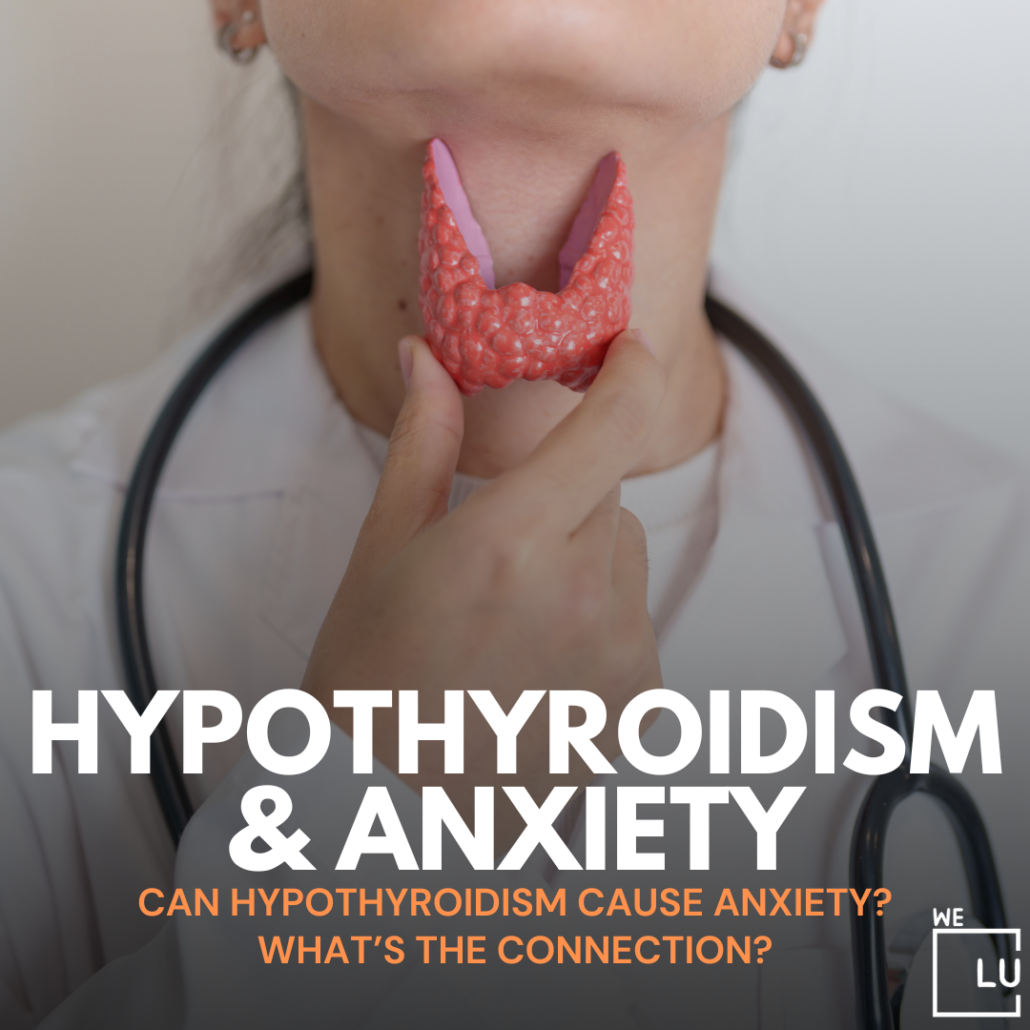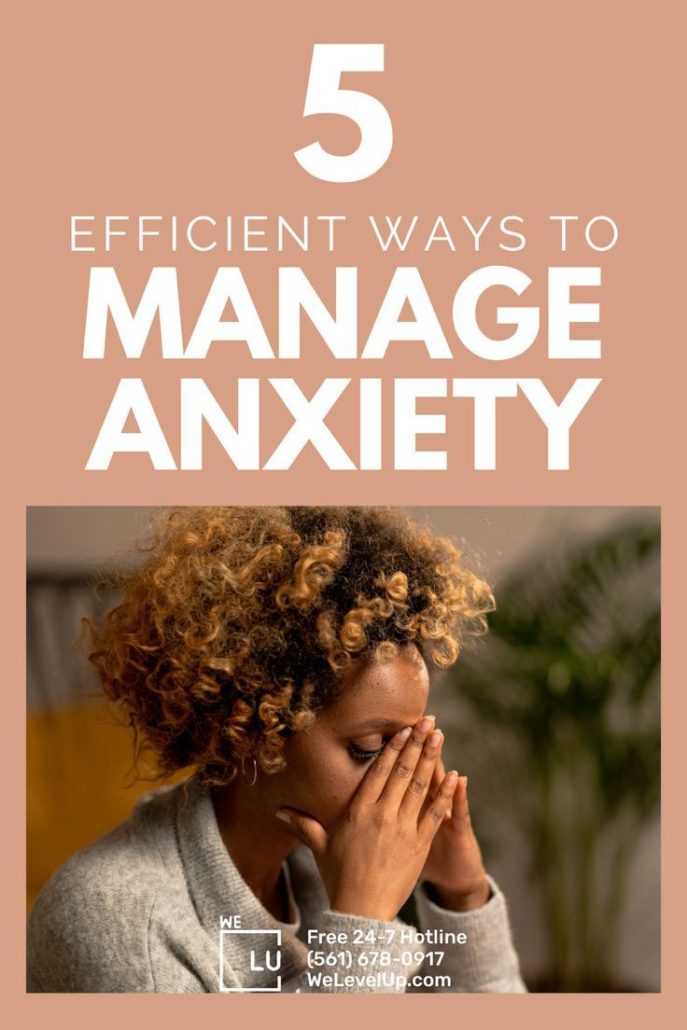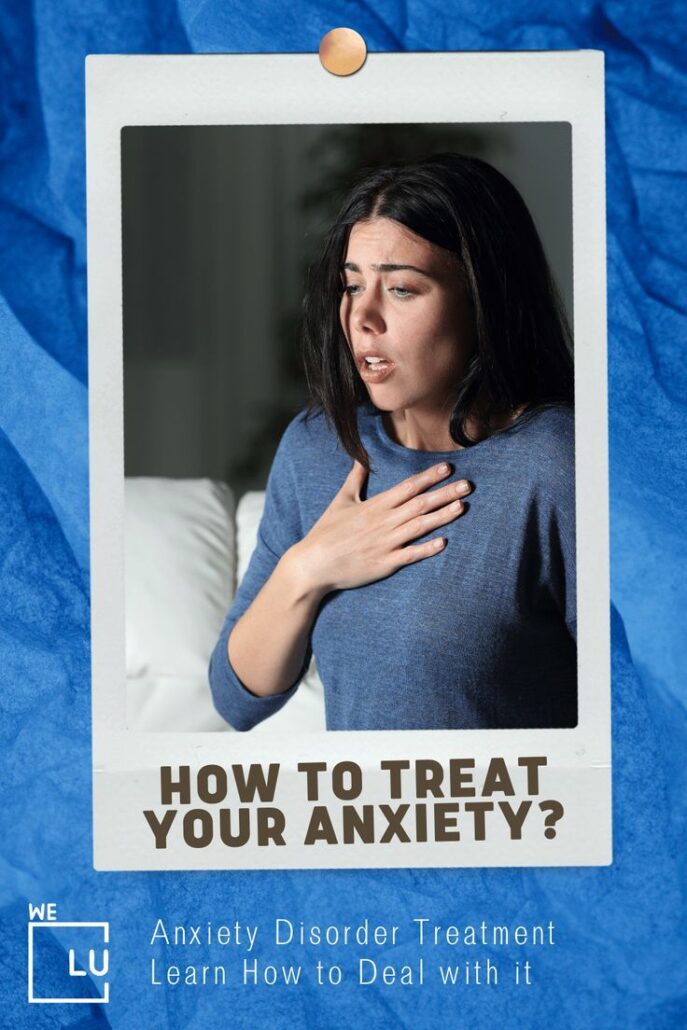What is the Connection Between Hypothyroidism and Anxiety?
When your thyroid doesn’t produce enough hormones, it can affect your mood, causing both depression and anxiety. The thyroid hormones are essential for regulating your body functions, like metabolism and the nervous system. When these hormones are impacted, they mess with the brain chemicals, leading to emotional struggles. So, can hypothyroidism cause anxiety?
Yes, thyroid disease can affect mood, causing anxiety. Taking medication, making lifestyle changes, and adjusting your diet can help manage hypothyroidism and improve your mental health. It’s also crucial to consult with healthcare professionals to create a personalized treatment plan that addresses the thyroid issue and your emotional health.
At We Level Up Florida, we know the struggles of anxiety and depression from hypothyroidism. We provide tailored mental health treatment programs to help you overcome these symptoms. Our center has skilled professionals in mental health, offering thorough treatment in a secure and supportive setting. Call today for a hassle-free evaluation.
Does Hypothyroidism Cause Anxiety?
Hypothyroidism, a condition where the thyroid gland doesn’t produce enough hormones, can lead to the following symptoms:
- Mood swings.
- Difficulty concentrating.
- Irritability.
- Fatigue.
- Depression.
- Sensitivity to cold.
- Changes in appetite.
- Decreased motivation.
- Memory problems.
Due to its impact on our emotions, it is no surprise that it’s linked to depression. Interestingly, anxiety is also a common symptom.
Research shows that people with hypothyroidism are more than twice as likely to develop anxiety disorders, with nearly 30% of anxiety cases associated with autoimmune thyroid disease.
The thyroid is crucial for maintaining energy and proper bodily function. Untangling hypothyroidism from anxiety can be challenging as their symptoms overlap.
Medical professionals often recommend thyroid tests, especially for women in their late thirties or early forties, as hormonal shifts during perimenopause can affect the thyroid. Various factors, from autoimmune diseases to medications, can contribute to hypothyroidism in both women and men. Seeking medical advice is crucial for accurate diagnosis and tailored treatment.
What is Anxiety?
Anxiety is a normal stress response, helping you stay alert in essential situations. However, if it becomes a constant presence, it can be a problem. Many people with anxiety might not even realize it, as it becomes their usual way of operating. Anxiety disorders, including generalized anxiety, panic disorder, social anxiety, and specific phobias, can interfere with everyday activities.
Concerning hypothyroidism, anxiety is quite common, often coexisting with depression or occurring independently.
In a study of 100 people with hypothyroidism, 63% showed some level of anxiety.
What Causes Anxiety in Hypothyroidism?
Why do people with hypothyroidism often experience anxiety? One reason could be that the physical challenges of hypothyroidism, such as poor concentration and difficulty in daily activities, can contribute to anxiety. Also, untreated hypothyroidism and incorrect medication dosage, like levothyroxine, may directly lead to anxiety symptoms like rapid heartbeat and shakiness.
Failure to address hypothyroidism can exacerbate anxiety and lead to persistent symptoms like dry skin, sensitivity to cold, hoarse voice, and mood swings. Over time, untreated hypothyroidism might even result in heart issues, further heightening anxiety.
Anxiety can also interfere with hypothyroidism treatment by causing medication lapses or hindering healthy lifestyle habits. Even in treated women, a study discovered a 13% higher prevalence of anxiety among those with a history of hypothyroidism compared to those without.
Most Common Symptoms of Anxiety
If you have hypothyroidism, keep an eye out for anxiety symptoms, including the following:
- Nervousness.
- Restlessness.
- Rapid heartbeat.
- Shakiness.
- Sweating.
- Fatigue.
- Difficulty concentrating.
- Irritability.
- Muscle tension.
- Sleep disturbances.
Thyroid issues, especially hyperthyroidism, can cause anxiety. Even though hypothyroidism is more commonly associated with depression, it can also trigger anxiety.
The thyroid hormone, essential for neurotransmitter regulation, may lead to anxiety and panic attacks when not functioning correctly. If you’re diagnosed with a thyroid disorder or suspect one and experience unexplained anxiety, the experts at We Level Up Florida are ready to help.
How to Manage and Treat Hypothyroidism Anxiety?
If you have hypothyroidism and anxiety, coordinate with your doctor to monitor both. Treatment and thyroid hormone adjustments should ideally consider lab tests and symptoms with a supportive healthcare provider. People with anxiety might need more frequent thyroid testing, as distinguishing between thyroid issues and mental health concerns can be challenging. Also, prioritize your mental health by collaborating with a mental health professional or with your doctor on anxiety treatment, whether through therapy, mindfulness, yoga, or a mix of approaches.
Get hypothyroidism anxiety counseling that works. Discover professional help from We Level Up Florida’s mental health therapists. Start getting support with a free call to our mental health hotline 24/7.

Skip To:
Learn More:
- What’s the Link Between Hypothyroidism and Depression?
- Can Anxiety Cause Nausea? The Link, Signs, and Treatment Options
- Can Anxiety Cause Chest Pain? Symptoms, Causes, and Treatment
- Can Anxiety Cause Diarrhea? How to Prevent, Manage, and Treat
- Can Sugar Cause Anxiety? The Connection You Need To Know
- Can Birth Control Cause Anxiety? Which Type Is Best For You?
- Guide to Menopause and Anxiety Symptoms. What is the Link?
- Heart Palpitations Anxiety: Causes, Symptoms, and Treatments
- What’s the Link Between Anxiety and High Blood Pressure?
- Anxiety Disorder Treatment, Types, Causes, and Symptoms
Get Help. Get Better. Get Your Life Back.
Searching for Accredited Dual Diagnosis Mental Health Centers Near You?
Even if therapy failed previously, or are in the middle of a difficult crisis, we stand ready to support you. Our trusted behavioral health specialists will not give up on you. When you feel ready or just want someone to speak to about counseling alternatives to change your life call us. Even if we cannot assist you, we will lead you to wherever you can get support. There is no obligation. Call our hotline today.
FREE 24/7 Dual Diagnosis Mental Health Services HotlineCoping Tips for Hypothyroidism and Anxiety
Navigating hypothyroidism and anxiety requires a holistic approach. Incorporating effective coping strategies into your daily routine can better address these challenges and improve your overall health. Here are some tips to help you successfully manage the symptoms of hypothyroidism and anxiety:
- Medication Management: Take your prescribed thyroid medication consistently as your healthcare provider directs. Proper medication helps regulate thyroid function, reducing symptoms that contribute to anxiety.
- Regular Monitoring: Regularly monitor your thyroid levels through periodic blood tests. This allows for timely adjustments to your medication dosage, ensuring optimal thyroid function and minimizing anxiety-related symptoms.
- Mental Health Support: Seek professional help for anxiety management. A therapist or counselor can provide coping strategies, and in some cases, medications may be prescribed to address anxiety symptoms specifically.
- Lifestyle Modifications: Adopt healthy lifestyle habits to support overall well-being. Coping skills may include the following:
- Regular exercise.
- Balanced diet.
- Sufficient sleep.
- Stress-reduction techniques such as mindfulness, yoga, or meditation.
- Open Communication with Healthcare Provider: Maintain open and honest communication with your healthcare team. Discuss any changes in symptoms, emotional well-being, or medication side effects promptly. This partnership ensures a comprehensive approach to managing both hypothyroidism and anxiety.
Begin your transformative journey with the We Level Up Florida mental health treatment center. Our comprehensive program is designed to empower you with the tools and support needed to regain control of your mental health. Through personalized strategies, we address the unique connection between hypothyroidism and anxiety, offering expert guidance on medication management, regular monitoring, and targeted interventions to alleviate anxiety symptoms.
Join a community that understands and cares, where open communication with skilled professionals ensures a tailored approach to your needs. Take the first step toward a brighter, balanced life with the We Level Up Florida mental health program—because your health deserves the highest level of care.
If you’re struggling with hypothyroidism, prioritizing self-care is critical to avoiding anxiety. Do you have questions about managing hypothyroidism anxiety or treatment in general? Call our helpline 24/7.

End the Emotional Pain. Get Your Life Back.
Feeling Depressed, Anxious or Struggling with Mental Health Illness? Get Safe Comfortable Mental Health Dual Diagnosis High-Quality Therapy From Counselors That Care. Begin Your Recovery Now.
Hotline (855) 940-6125Understanding Hypothyroidism and Heart Palpitations Anxiety
When it comes to hypothyroidism and heart palpitations anxiety, understanding the complex relationship is vital for effective management. In hypothyroidism, the thyroid gland fails to produce sufficient hormones, leading to a cascade of physiological effects.
This hormonal imbalance can disrupt the normal functioning of the cardiovascular system, potentially causing irregular heartbeats or palpitations. Moreover, anxiety amplifies this phenomenon as the heightened stress levels trigger the release of stress hormones, further exacerbating heart palpitations.
A healthcare professional can shed light on the specific impact of thyroid hormone imbalances on the heart and how anxiety amplifies these effects. They may discuss tailored treatment plans involving thyroid medication to restore hormonal balance and strategies to address anxiety, offering a holistic approach to alleviate heart palpitations and enhance overall health.
What About Hyperthyroidism and Anxiety?
Hyperthyroidism, marked by an overactive thyroid gland, can significantly impact mental health, often manifesting as heightened anxiety. The excess production of thyroid hormones can lead to physiological responses such as an increased heart rate, restlessness, and heightened sensitivity to stress. These symptoms contribute to elevated anxiety levels in individuals with hyperthyroidism.
It’s crucial to recognize and address this connection, as managing hyperthyroidism effectively involves not only regulating thyroid function through medications or therapies but also implementing strategies to alleviate anxiety symptoms. Seeking professional medical guidance is critical to understanding and navigating the complexities of hyperthyroidism-related anxiety, ensuring a comprehensive approach to both physical and mental health.
Anxiety Disorder Treatments
Anxiety often co-occurs with various physical illnesses, exacerbating health challenges. Conditions like cardiovascular issues, chronic pain, gastrointestinal disorders, and hypothyroidism may be accompanied by heightened anxiety. Addressing these physical and mental conditions is crucial for comprehensive healthcare and improved overall health.
There are ways to address anxiety without directly treating the underlying thyroid issue. Treatment options include the following:
- Cognitive Behavioral Therapy (CBT): This type of psychotherapy is a widely used therapeutic approach that focuses on identifying and modifying negative thought patterns and behaviors contributing to anxiety. It helps individuals develop coping strategies and problem-solving skills. CBT has shown high efficacy in treating various anxiety disorders, providing long-lasting benefits even after therapy concludes.
- Selective Serotonin Reuptake Inhibitors (SSRIs): SSRIs are a class of antidepressant medications that increase serotonin levels in the brain. They help regulate mood and alleviate symptoms of anxiety by improving the balance of neurotransmitters. SSRIs are often considered a first-line pharmacological treatment for anxiety disorders due to their effectiveness and relatively low side effect profile.
- Exposure Therapy: This therapy involves systematic and gradual exposure to feared objects or situations, helping individuals confront and overcome their anxieties. It is particularly effective for phobias and obsessive-compulsive disorder (OCD). Exposure therapy has demonstrated success in reducing anxiety and improving overall functioning by promoting desensitization to anxiety triggers.
- Mindfulness-Based Stress Reduction (MBSR): MBSR incorporates mindfulness meditation and awareness techniques to help individuals manage stress, anxiety, and negative emotions. It encourages living in the present moment without judgment. MBSR has been found effective in reducing symptoms of anxiety and improving overall mental well-being.
- Benzodiazepines: Benzos are a class of sedative medications that provide rapid relief from acute anxiety symptoms. They work by enhancing the effect of the neurotransmitter GABA, leading to a calming effect. Benzodiazepines are effective for short-term relief but are generally prescribed cautiously due to the risk of dependence and withdrawal.
- Yoga and Meditation: Mindfulness and exercises, such as yoga, involve physical postures, breath control, and mindfulness techniques. They promote relaxation, reduce stress, and enhance overall mental well-being. Regular practice of yoga and meditation has shown to be beneficial in managing anxiety, improving emotional resilience, and promoting a sense of calm.
- Acceptance and Commitment Therapy (ACT): ACT combines cognitive and behavioral techniques with mindfulness strategies. It focuses on accepting negative thoughts and feelings rather than trying to eliminate them, promoting values-based actions and commitment to behavioral changes. ACT has demonstrated effectiveness in various anxiety disorders, particularly in fostering psychological flexibility and reducing the impact of anxiety on daily functioning.
These top evidence-based treatments involve a range of therapeutic and pharmacological options, highlighting the importance of individualized approaches based on the specific nature and severity of the anxiety disorder. Consulting with a mental health professional is crucial to determine each individual’s most suitable treatment plan.
First-class Facilities & Amenities
World-class High-Quality Mental Health Services & Behavioral Health Substance Abuse Treatment
Rehab Centers TourRenowned Mental Health Centers. Serene Private Facilities. Inpatient Rehab Programs Vary.
Mental Health Helpline (855) 940-6125Proven recovery success experience, backed by a Team w/ History of:
15+
Years of Unified Experience
100s
5-Star Reviews Across Our Centers
10K
Recovery Successes
- Comprehensive Dual-Diagnosis Treatment
- Complimentary Family & Alumni Programs
- Coaching, Recovery & Development Events
- Comfortable Onsite Medical Detox Center
We Level Up Florida Mental Health Treatment Center for Hypothyroidism Anxiety
We Level Up Florida mental health treatment professionals prioritize your overall health by offering specialized, evidence-based, and holistic care for individuals struggling with the symptoms of hypothyroidism anxiety. Our dedicated team of healthcare professionals understands the unique challenges posed by this condition and is committed to providing comprehensive, tailored solutions.
At We Level Up Florida, we believe in a holistic approach to mental health. For those coping with hypothyroidism and anxiety, our expert clinicians offer cutting-edge treatments, incorporating evidence-based therapies such as cognitive behavioral therapy (CBT) to address anxiety symptoms. Our personalized treatment plans focus on regulating anxiety symptoms through counseling and support.
Our state-of-the-art facility is designed to create a healing environment, fostering a sense of calm and security. We prioritize open communication, ensuring that every individual’s concerns and progress are acknowledged. Whether you seek a thorough diagnosis, medication management, or supportive therapy, We Level Up Florida will guide you on your journey to healing.
If hypothyroidism anxiety is affecting you or someone you know, We Level Up Florida Mental Health Treatment Center offers personalized care with experienced professionals. Start your path to better health by taking the first step toward healing. Contact We Level Up FL now. Each call is free and confidential.
World-class, Accredited, 5-Star Reviewed, Effective Mental Health Dual Diagnosis Programs. Complete Integrated Inpatient Rehab with Free Post Discharge Therapy Planning.
CALL (855) 940-6125End the Emotional Pain Rollercoaster. Gain Stability & Happiness Through Recovery Treatment. Start Mental Health Counseling Today. Get Free No-obligation Guidance by Behaviroal Health Specialists Who Understand Mental Health Recovery.
Powerful Coping Tips for Anxiety | Advice from a Therapist Video
Experience Transformative Recovery at the We Level Up Treatment Center.
See our authentic success stories. Get inspired. Get the help you deserve.



Start a New Life
Begin with a free call to a behavioral health treatment advisor. Learn more about our dual-diagnosis programs. The We Level Up treatment center network delivers recovery programs that vary by each treatment facility. Call to learn more.
- Personalized Care
- Caring Accountable Staff
- World-class Amenities
- Licensed & Accredited
- Renowned w/ 5-Star Reviews
We’ll Call You
Search We Level Up FL Can Hypothyroidism Cause Anxiety? Mental Health Topics & Resources
Sources
- Bathla M, Singh M, Relan P. Prevalence of anxiety and depressive symptoms among patients with hypothyroidism. Indian J Endocrinol Metab. 2016 Jul-Aug;20(4):468-74. Doi: 10.4103/2230-8210.183476. PMID: 27366712; PMCID: PMC4911835.
- Nuguru SP, Rachakonda S, Sripathi S, Khan MI, Patel N, Meda RT. Hypothyroidism and Depression: A Narrative Review. Cureus. 2022 Aug 20;14(8):e28201. Doi: 10.7759/cureus.28201. PMID: 36003348; PMCID: PMC9392461.
- Hypothyroidism: MedlinePlus Medical Encyclopedia (.gov)
- HTDS Guide – About Thyroid Disease: Section Summary – Centers for Disease Control and Prevention (CDC)
- Patil N, Rehman A, Jialal I. Hypothyroidism. [Updated 2023 Aug 8]. In: StatPearls [Internet]. Treasure Island (FL): StatPearls Publishing; 2023 Jan-. Available from: https://www.ncbi.nlm.nih.gov/books/NBK519536/
- Chaker L, Bianco AC, Jonklaas J, Peeters RP. Hypothyroidism. Lancet. 2017 Sep 23;390(10101):1550-1562. Doi: 10.1016/S0140-6736(17)30703-1. Epub 2017 Mar 20. PMID: 28336049; PMCID: PMC6619426.
- Bandelow B, Michaelis S, Wedekind D. Treatment of anxiety disorders. Dialogues Clin Neurosci. 2017 Jun;19(2):93-107. Doi: 10.31887/DCNS.2017.19.2/bbandelow. PMID: 28867934; PMCID: PMC5573566.
- Munir S, Takov V. Generalized Anxiety Disorder. [Updated 2022 Oct 17]. In: StatPearls [Internet]. Treasure Island (FL): StatPearls Publishing; 2023 Jan-. Available from: https://www.ncbi.nlm.nih.gov/books/NBK441870/
- Anxiety Disorders – National Institute of Mental Health (NIMH)
- Anxiety Disorders – Substance Abuse and Mental Health Services Administration (SAMHSA)







